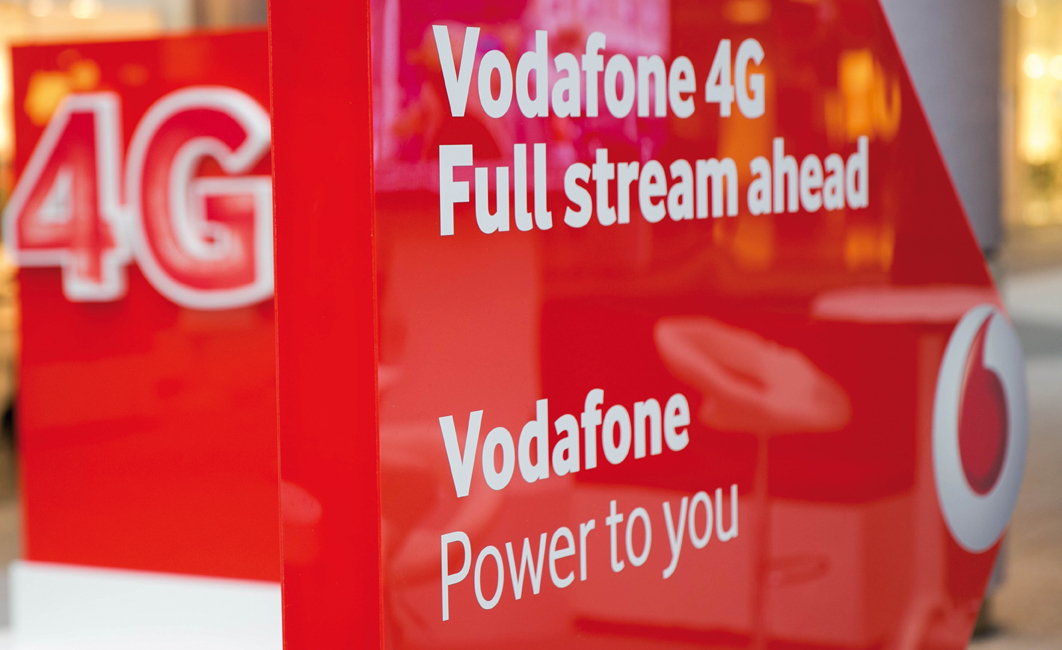Investing
Vodafone – to sell or not to sell?

Savers benefitting from a £51bn windfall from holding shares with Vodafone will be weighing up their options – to sell or not to sell?
Hundreds of thousands of private British shareholders will benefit from one of the biggest deals in corporate history – a $130bn deal of Vodafone selling its 45% stake in US business Verizon Wireless. For each Vodafone share owned, 0.026 of a Verizon share will be granted.
A calculation by Vodafone has estimated that UK shareholders will receive an average of £3,500 each in cash and shares.
Historically, Vodafone has been one of the biggest and consistent dividend paying stocks for income investors that will see their income fall by about half.
This is because Vodafone planned a ‘share consolidation’ which means that shareholders will end up with fewer Vodafone shares than they hold today. This process allows the company to maintain a consistent individual Vodafone share price and yield.
Stockbroker Killik & Co says it is positive on both Vodafone and Verizon.
Paul Kavanagh, chief investment officer at Killik, said: “We recommend savers hold on to remaining shares.”
Killik believes Vodafone’s investment in its network and service will enhance the group’s competitive position at a time when “many of its rivals are cash-strapped, and help to increase its market share”.
Kavanagh added: “While the US wireless market is seen as mature in terms of basic mobile connection, we believe that there is potential for Verizon to continue to grow revenue and the purchase of the Vodafone stake in Verizon Wireless will offer revenue and cost synergies in excess of the current guidance provided by the company.”
Brokers at Charles Stanley are also upbeat about the prospects of the companies. Tom Gidley-Kitchin, an analyst at Charles Stanley, said: “We would recommend that clients consider reinvesting some or all of their distribution back into new Vodafone shares. Consolidated Vodafone shares would be on a yield of around 4.5 – 5%, well covered by cash flow and with plenty of room for regular increases even if Europe does not turn round immediately.”
Richard Hunter at Hargreaves Lansdown Stockbrokers said: “Market consensus is that both Vodafone and Verizon are a ‘buy’.”
This time last year, star fund manager Neil Woodford sold the last of his substantial Vodafone holdings, to the surprise of many. Some investors might want to follow suit following the deal. Many might want to avoid the hassle of owning a US-based company and sell their Verizon shares straight away. This will free up cash to be reinvested.
Investors who like dividend paying stocks should look to the largest 20 companies in the FTSE 100 – known as mega caps, according to Jamie Forbes Wilson, manager of the Axa Framlington Blue Chip Equity Income fund.
He said: “Last year, those companies that recognised the importance of total shareholder returns saw their share prices gain most. This has been a feature of the market in recent years as company balance sheets have been rebuilt and capital has been returned to shareholders through growing dividend payments.
“A prime example of this has been ITV whose management team have addressed an inefficient balance sheet, repaired it, reinstated the dividend and paid out further capital via a special dividend. Their reward has been a 200% rise in share price since the dividend was reinstated on 27th July 2011 (69.5p).
“Mega cap companies are beginning to get the message about capital discipline and capital returns from their shareholders. Rio Tinto has recently announced a 15% increase to their final dividend and BHP Billiton alluded at their interim results to an increase in capital returns over the coming year.”
Helal Miah, investment research analyst at The Share Centre, picks three alternatives; GlaxosmithKline which is yielding 4.5%, Royal Dutch Shell yielding 4.7% and BP at 4.4%.
A report from Henderson Global Investors this week found Shell, Vodafone, and HSBC featured among the top ten largest dividend payers last year.
How to buy US sharesInvestors can buy US shares through a UK stockbroker. They need to fill out a W8-Ben form first which is required for non-US residents. This declaration is important as it reduces the amount of tax investors pay on US dividends received. Usually there is a withholding tax of 30%, which is then reduced down to 15%. The cost of owning shares in the US is no longer really expensive. Transaction costs are the same for buying shares in the UK but it is important to consider the currency. |